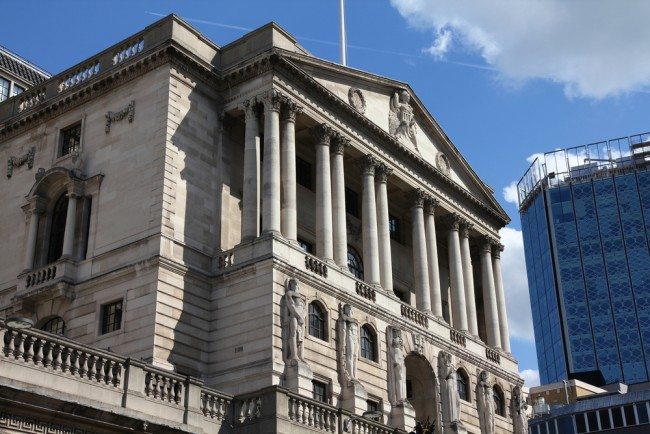Interest rates are on course to rise at the start of next year, the Bank of England will signal this week, as faster growth and robust pay rises pave the way for policymakers to begin gradual rate hikes, reports The Telegraph.
The Bank’s latest healthcheck of the economy is expected to trigger the first split this year between policymakers over the timing of rate rises, as staff revise up growth and earnings forecasts.
Dubbed “Super Thursday”, Threadneedle Street will publish its quarterly Inflation Report alongside the Monetary Policy Committee’s (MPC) interest rates decision and minutes.
Mark Carney, the Governor of the Bank of England, told households last month to start preparing for higher rates, with a decision likely to come into “sharper relief” by “the turn of this year”.
Inflation, which stood at zero in June, is expected to pick up “notably” once last year’s dramatic drop in oil prices fades from the data at the end of 2015, and the Bank’s latest projections are likely to endorse market expectations that rates will start to rise in January or February next year.
Analysts expect Martin Weale and Ian McCafferty – two external MPC members – to start voting for rate hikes this month. The pair voted for Bank Rate to be raised to 0.75 per cent, from a record low of 0.5 per cent, five times from last August. However, they dropped their call in January because of the risk that low inflation could become entrenched.
Mr Weale suggested in June that policymakers should be ready to tighten policy as early as this month, while David Miles, who leaves the MPC this month, said it was a “bad mistake” if policymakers waited too long to raise rates.
Mr Carney has assured borrowers that any rate rises “would proceed slowly”, and that the nine-member rate-setting panel would adopt a “feel its way as it goes” approach that would be entirely data dependent.
The UK economy grew by 0.7pc in the three months to June compared with the previous quarter, which was stronger than the Bank’s projection of 0.6pc for the first estimate.
Pay growth has also exceeded the Bank’s expectations. Average weekly earnings growth of 2.7 per cent in the quarter to April compared with a year earlier was 0.8 percentage points stronger than had been expected in the Bank’s last forecast in May. Regular pay growth was also stronger than predicted.
Wage increases in May were even stronger, with total earnings growth of 3.2 per cent the fastest since April 2010.
However, bullish projections for earnings are likely to be offset by stronger productivity, easing employer costs and leaving more room for growth without stoking inflation.
Total hours worked fell by 0.2 per cent in the three months to May, according to official data. “Taken together with the 0.7 per cent rise in GDP in the second quarter, this suggests that productivity on an output per hour basis probably rose by just shy of 1pc on the quarter,” said Paul Hollingsworth, an economist at Capital Economics. “This would push the annual growth rate to its highest since the second quarter of 2010.”
Mr Carney will also write his third letter to George Osborne, the Chancellor, explaining why inflation is well below the MPC’s 2 per cent target. Minutes of its June meeting showed that stripping out volatile falls in energy, food and imports, inflation, as measured by the consumer prices index, would be about 1.5 per cent.
Others said sterling’s recent strength and a renewed fall in oil prices meant most of the MPC would wait until next year to raise rates. The pound has climbed 3 per cent against a basket of other currencies since May.
Andy Haldane, the Bank’s chief economist, has said that this will push down on the Bank’s medium term inflation forecast by at least another 0.2 percentage points.
Chris Hare, an economist at Investec, said: “In the May Report, inflation was projected at 2pc at the two-year-ahead horizon so, all else equal, sterling news would now see the MPC projecting a slight undershoot of the inflation target.
All told, our expectation is that the domestic cost versus import cost news will broadly balance out to leave the medium term inflation outlook in a similar place, with the two-year-ahead forecast close to the 2pc target. So over and above the voting dynamics, we expect the MPC to leave markets fairly unrattled.”
Others warned that markets were becoming too complacent about interest rate rises.


